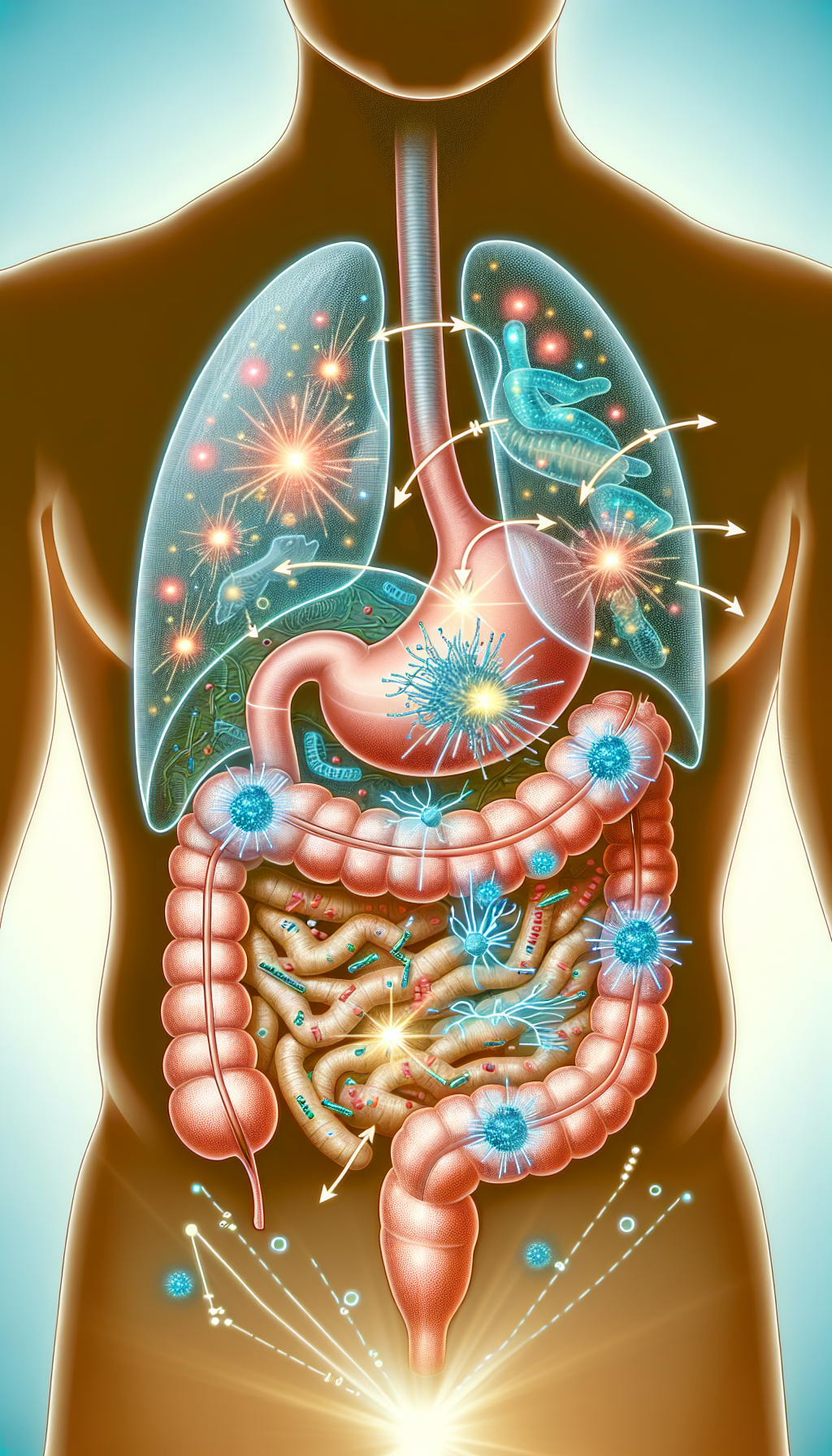Vitamin D, often referred to as the "sunshine vitamin," is crucial for maintaining various aspects of our health, including bone and immune system function. However, recent research uncovers a fascinating link between Vitamin D and gut health, a connection that could have significant implications for our overall well-being.
Vitamin D: A Brief Overview
Before delving into the gut microbiome, it’s essential to understand what Vitamin D is and how it functions in the body. Vitamin D is a fat-soluble vitamin that is naturally present in a few foods, added to others, and available as a dietary supplement. It is also produced endogenously when ultraviolet rays from sunlight strike the skin and trigger Vitamin D synthesis.
Vitamin D has several important functions. Perhaps the most vital is regulating the absorption of calcium and phosphorus, and facilitating normal immune system function. More about the role of Vitamin D in bone health. Getting a sufficient amount of Vitamin D is important for the growth and development of bones and teeth, as well as improved resistance against certain diseases.
The Gut Microbiome and Its Importance
The human gut harbors a complex community of microorganisms, known as the gut microbiota, which plays a crucial role in our digestive health. These microbes assist in breaking down food, absorbing nutrients, and contribute to the body’s immune response. The gut microbiome is also involved in producing certain vitamins and communicating with the central nervous system through the gut-brain axis.
The Vitamin D-Gut Health Connection
Research indicates that Vitamin D can influence the gut microbiome. Studies suggest that adequate levels of Vitamin D in the body can promote a more diverse and stable gut microbiome, which is associated with better gut health. Conversely, Vitamin D deficiency has been linked to an imbalance in the gut flora, known as dysbiosis, which can contribute to various gastrointestinal disorders and chronic diseases.
Supporting the Immune System
Vitamin D plays a significant role in the regulation of the immune system. It can modulate the immune responses, ensuring that they remain balanced. This is particularly important within the gut, where the immune system must distinguish between harmful pathogens and beneficial microbes. An adequate level of Vitamin D helps maintain this delicate balance, supporting a healthy immune response in the gut.
Impact on Inflammatory Bowel Disease
Inflammatory Bowel Disease (IBD), which includes conditions such as Crohn’s disease and ulcerative colitis, has been shown to be influenced by Vitamin D levels. Vitamin D may help reduce inflammation in the gut, which is a hallmark of IBD. Insights into managing liver health for effective toxin elimination may also provide useful information given the liver’s role in Vitamin D metabolism.
The Role in Intestinal Flora
Vitamin D is believed to affect the composition of the gut microbiota. A deficiency in Vitamin D may lead to a decrease in beneficial bacteria, which can have adverse effects on digestive health. On the other hand, sufficient Vitamin D levels have been associated with a more favorable composition of gut bacteria.
Optimizing Vitamin D for Gut Health
To ensure adequate levels of Vitamin D for gut health, there are several strategies one can employ:
- Sun Exposure: Regular, moderate sun exposure is the most natural way to get enough Vitamin D. However, the amount of sun exposure needed can vary based on the time of day, season, latitude, skin pigmentation, and use of sunscreen.
- Diet: Incorporating Vitamin D-rich foods into your diet, such as fatty fish, egg yolks, and fortified foods, can help maintain healthy levels.
- Supplements: Vitamin D supplements can be beneficial, especially for those at risk of deficiency. It’s important to discuss with a healthcare provider before starting any new supplement regimen.
External Resources to Explore
While the role of Vitamin D in gut health continues to be a topic of research, several high-quality resources can provide further information on this subject:
- A deep dive into the specific impacts of Vitamin D on the gut microbiota.
- An exploration of Vitamin D’s immunomodulatory effects.
- A clinical overview of Vitamin D supplementation in IBD patients.
These resources offer a more detailed understanding of how Vitamin D interacts with our gut health and the potential therapeutic applications of this vitamin in treating and preventing gastrointestinal conditions.
The Broader Picture of Digestive Health
While focusing on Vitamin D is crucial, it’s important to maintain a holistic approach to digestive health. Strategies for preventing diverticulitis flare-ups provide insight into managing specific digestive conditions. Additionally, understanding the role of fasting in gut health renewal can offer alternative approaches to supporting gut health.
Conclusion
The connection between Vitamin D and gut health is an exciting area of research that underscores the importance of this vitamin beyond its traditional role in bone health. Ensuring adequate Vitamin D levels may be a key factor in maintaining a healthy gut microbiome and optimizing digestive health. As research continues to unravel the complexities of the gut-health nexus, the potential for Vitamin D to play a significant role in managing and preventing digestive disorders becomes increasingly clear.
A balanced approach, including appropriate sun exposure, a diet rich in Vitamin D, and potentially supplementation, can help maintain the delicate balance of the gut ecosystem. By looking after our gut health, we are taking a vital step towards overall health and well-being.



